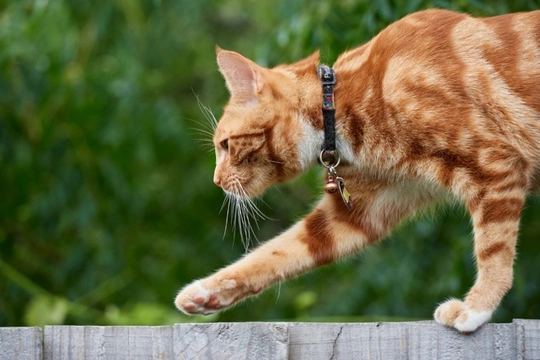
Do Bells on Cats' Collars Reduce Hunting? UK Guide 2025
Many UK cat owners ask, do bells on cats' collars really reduce hunting? As of 2025, veterinary and ecological studies confirm that bell collars reduce a cat's hunting success by approximately 50%, particularly for birds and small mammals. The soft jingling sound alerts potential prey, disrupting the cat's stealth and lowering predation rates. Importantly, cats do not habituate to the bell sound, ensuring long-lasting effectiveness. Using bell collars is a compassionate step supporting wildlife conservation and responsible cat care.
How Effective Are Bells on Cats' Collars for Reducing Hunting?
Recent UK research shows cats wearing bell collars catch about half as much prey compared to those without bells, with a notable reduction in bird and small mammal predation. Combining bells with brightly coloured or reflective collar covers (such as those from BirdsBeSafe) further reduces mammal predation by over 54% and aids night-time visibility, enhancing safety for cats and wildlife alike.
| Aspect | Effect and Advice |
|---|---|
| Bell collar only | Approximately 50% fewer prey caught, especially birds and small mammals |
| Bell plus BirdsBeSafe collar | Over 54% reduction in mammal predation plus better night visibility |
| Cat adaptation | Cats do not become accustomed; bell effect remains long-term |
| Impact on cat welfare | No evidence of hearing damage; some cats may find bells mildly irritating; use lightweight breakaway collars |
| Ethical recommendations | Endorsed as a humane conservation tool by UK experts |
Though some cats’ hunting style may occasionally circumvent a bell’s effect, the method substantially reduces kills. It remains an effective wildlife protection tool.
Safe Fitting Guide for Bell Collars on Cats
Step 1: Choose a Breakaway Collar
Select a quick-release collar designed for cats, ensuring it is lightweight and releases safely if caught to avoid injury.
Step 2: Measure Your Cat’s Neck Properly
Use a flexible tape measure on your relaxed cat’s neck. Leave 1–2 inches extra for comfortable fit; avoid too loose or tight collars.
Step 3: Apply the Two-Finger Rule
After fitting, ensure you can comfortably slip two fingers between collar and neck. This prevents rubbing or soreness.
Step 4: Avoid Elastic or Unsuitable Collars
Elastic collars can tighten unexpectedly and cause harm; always choose cat-specific designs.
Step 5: Select Sealed Bells
Opt for bells without openings to reduce risks of claws or tongues getting trapped.
Step 6: Introduce the Collar Gradually
Allow your cat to wear the collar indoors first, rewarding with treats and praise to foster positive associations.
Step 7: Inspect the Collar Regularly
Check daily for wear or damage, especially important for growing kittens. Replace if faulty.
Step 8: Monitor Your Cat’s Behaviour
Watch for signs of discomfort such as scratching or appetite changes. Consult a vet if needed.
Responsible Kitten Acquisition and Ownership in the UK
Since 2025, UK laws emphasise kitten welfare, with Lucy's Law banning third-party kitten sales. Kittens must be sourced directly from registered breeders or reputable rehoming centres to ensure proper maternal care and socialisation.
- Consider adoption from trustworthy shelters offering health checks and support.
- If purchasing, select reputable breeders providing health records and legal documentation.
- Kittens should stay with their mothers for a minimum of eight weeks to support healthy development.
- Registered breeders must meet welfare standards to uphold ethical breeding practices.
These rules promote lifelong health, responsible ownership, and help reduce abandonment and inhumane breeding.
Additional Ways to Protect Wildlife and Enrich Your Cat’s Life
- Limit Outdoor Access at Peak Wildlife Activity: Keep cats indoors during dawn and dusk when wildlife is most vulnerable.
- Avoid placing bird feeders within cats’ reach to protect native bird populations and reduce hunting triggers.
- Provide Indoor Enrichment: Use toys, puzzle feeders, and interactive play to satisfy hunting instincts indoors.
- Use Safe Outdoor Enclosures (Catios): Let cats enjoy outside safely without threatening wildlife.
- Supervise Outdoor Time: Always monitor cats outside to prevent unsupervised hunting and enhance safety.
- Neuter and Microchip Your Cat: These are essential for population control and responsible care.
Frequently Asked Questions from UK Cat Owners
- Do cats mind wearing bells?
- Cats may initially resist bells, finding the jingling irritating or stressful, particularly sensitive or anxious cats. Most adapt quickly with gradual introduction and positive reinforcement. If your cat shows distress, seek veterinary advice.
- Will my cat still hunt with a bell?
- Yes, cats may continue hunting, but their success drops by about 50%, helping conserve local wildlife.
- Are bell collars safe for cats?
- Yes, when fitted with lightweight breakaway collars correctly. Avoid elastic collars to prevent injury risks.
- Can bell collars completely stop wildlife loss?
- No method is foolproof; however, bells combined with reflective covers and responsible care provide the best current defence against cat predation.
This 2025 UK guide reflects current veterinary and ecological consensus, encouraging compassionate cat care that respects feline nature while protecting native wildlife.



